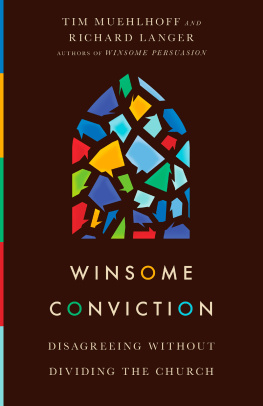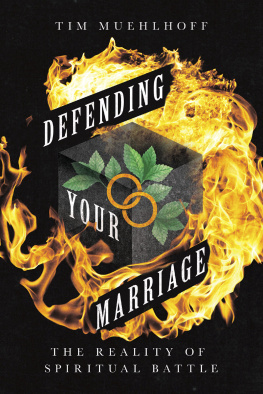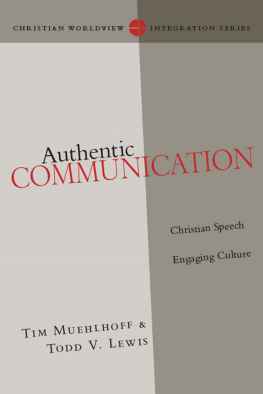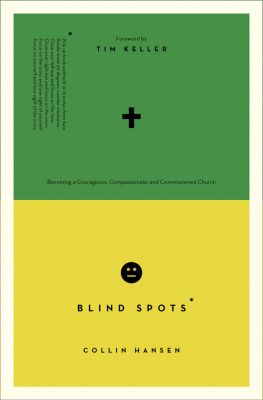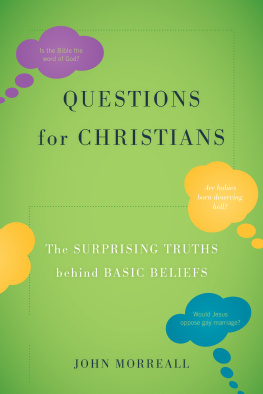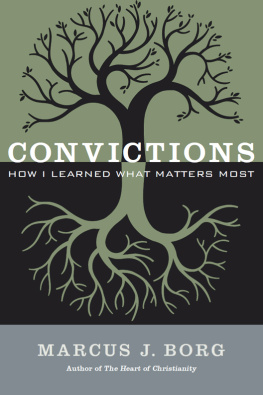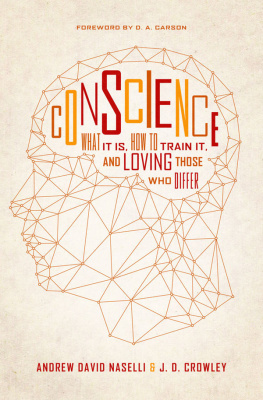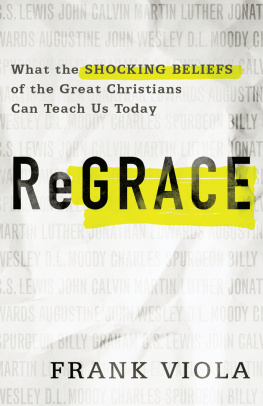Sommaire
Pagination de l'dition papier
Guide
InterVarsity Press
P.O. Box 1400, Downers Grove, IL 60515-1426
ivpress.com
2020 by Tim Muehlhoff and Richard Langer
All rights reserved. No part of this book may be reproduced in any form without written permission from InterVarsity Press.
InterVarsity Press is the book-publishing division of InterVarsity Christian Fellowship/USA, a movement of students and faculty active on campus at hundreds of universities, colleges, and schools of nursing in the United States of America, and a member movement of the International Fellowship of Evangelical Students. For information about local and regional activities, visit intervarsity.org.
All Scripture quotations, unless otherwise indicated, are taken from The Holy Bible, New International Version, NIV. Copyright 1973, 1978, 1984, 2011 by Biblica, Inc. Used by permission of Zondervan. All rights reserved worldwide. www.zondervan.com. The NIV and New International Version are trademarks registered in the United States Patent and Trademark Office by Biblica, Inc.
While any stories in this book are true, some names and identifying information may have been changed to protect the privacy of individuals.
The publisher can't verify the accuracy of website hyperlinks beyond the date of print publication.
Interior design: Jeanna Wiggins
Image: IkonStudio / iStock / Getty Images Plus
ISBN 978-0-8308-4800-3 (digital)
ISBN 978-0-8308-4799-0 (print)
This digital document has been produced by Nord Compo.
To three individuals whove shaped my thinking about
communication: J. P. Moreland for giving me a vision for strategic
cultural engagement; Tim Downs whothrough
the Communication Centerprovided encouragement
and confidence to work out my thoughts; Julia T. Wood who
selflessly continues to share a lifetime of expertise and passion.
Tim Muehlhoff
To the members of the countless small groups of which I have
been a partin the early years of my Christian discipleship,
in my many years of vocational ministry as a pastor,
and in my more recent years as a university professor.
These groups, whether Bible studies, reading groups,
or boards, have taught me to savor the taste of a love
that is deeper than our disagreements.
Richard Langer
INTRODUCTION
CHRISTIAN UNITY IN
THE ARGUMENT CULTURE

Trump Should Be Removed from Office.
I wont feed into this mass hysteria, nor scare my own children by wearing a mask!
Sure, racism exists, but the idea of systemic racism is fake news!
Each quote is a different iteration of the beginning of this book. We were looking for current controversies in which believers have opposite opinions. They each see their position as a Christian conviction so they expect all Christians to share it. As soon as we picked one issue, it was pushed aside by another.
Trump Should Be Removed from Office is the title of Christianity Todays then editor-in-chief Mark Gallis controversial op-ed piece where he argues that the president has abused his power for personal gain and should be impeached. He concludes by asking if sincere Christians can honestly continue to assert that the bent and broken character of our nations leader doesnt really matter in the end? It seemed like the perfect example of conflicting Christian convictions. That is, until COVID-19 hit.
I wont feed into this mass hysteria, nor scare my own children by wearing a mask! This was exclaimed by a participant in a Zoom meeting of local church leaders gathering to discuss how to respond to the pandemic. The topic of wearing a facemask dominated the discussion and provoked powerful disagreements. While each sought to fulfill the second great commandment, they had vastly different ideas of what that meant in practice. To one side, neighbor love is not perpetuatingvia wearing a maskan over-reaction that is only stoking needless fear. To the other, loving our neighbors means showing deference to those in our community who are fearful and adopting precautions advocated by reputable health experts. With a deadline approaching, this introduction seemed even more relevant.
But while the ink was drying on that draft, we all witnessed the horrifying killing of George Floyd whose cries of I cant breathe fell on the deaf ears of a White policeman with a knee on his neck. I cant breathe became the rallying cry of protest marches across the world pushing COVID-19 to the background. In the midst of the swirling controversy, a pastor friend of ours angrily asserted, Sure, racism exists, but the idea of systemic racism is fake news! He represented conversations being held in hushed tones in predominately White churches across America. Racism exists, of course, but systemic racism is not supported by the facts. Sorry. Such views deeply hurt many Christians and especially Christians of color who felt ignored, again.
What all three quotes have in common are not only powerful emotions but deep divisions among Jesus followers. This division wasnt started by calls for impeachment, a pandemic, or Black Lives Matter protests. Cracks in our unity were already present. These challenging events simply brought them front and center where they can no longer be ignored. The truth is that any attempts to follow Jesus often lead sincere Christians in different and seemingly incompatible directions.
Can you relate?
While your disagreement with a person sitting in the pew in front of you or a Christian colleague at an organization or school may not concern something as dramatic as impeaching a president or defunding the police, we all know what its like to be angry and disappointed with the convictions of a fellow believer.
By the time you read this introduction, there may be something new dominating the headlines and pulling Christians apart. The question is, what can be done?
The only thing more difficult than discussing Christian convictions in the public square is discussing them with fellow believers in the church. This may seem counterintuitive but it is true. We may have more disagreements with nonbelievers, but our disagreements with fellow believers are more problematic and more emotionally charged.
Outside the Christian community, one anticipates having biblical convictions contested or despised. Disagreement is unpleasant but expected. We know our beliefs about Christ and morality are not broadly shared in the American public square. Therefore, we expect conflict and are equipped for itor at the very least know we should be. But when our personal convictions are contested by fellow church members, everything changes. We feel attacked from behind. It feels both unexpected and wrong! We assume our biblical convictions will be shared by those sitting on either side of us in church. If they doubt or deny our convictions, we dont experience it as a mere difference of opinion but rather as a violation of an unspoken agreement. We are not merely intellectually challenged by a new idea or puzzled by a different viewpoint; we are hurt and offended.
This offense is not unique to the American church. As we have traveled internationally, weve heard the same concerns coming from church leaders in Canada, Indonesia, Kenya, Uganda, Korea, Lithuania, Russia, China, Romania, and England. It seems the challenges to Christian unity are experienced worldwide, and this isnt merely a modern struggle fueled by social media. Paul tells believers at Corinth that they have been called to be holy together with all those everywhere who call on the name of our Lord Jesus Christ (1 Cor 1:2). Yet, nine verses later he writes that he has learned there are quarrels among you (1:11).

